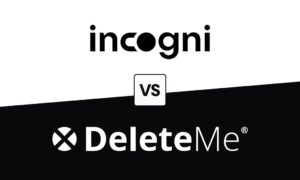In today’s digital age, we find ourselves constantly immersed in a sea of advanced media technology. While this technology has undoubtedly transformed the way we live, work, and interact, it has also given rise to profound concerns about privacy and security. As we navigate the digital landscape, it’s essential to be aware of the potential risks and take proactive steps to protect our privacy. This article delves into the privacy concerns associated with advanced media technology and offers practical tips on how to stay secure in this ever-evolving digital world.
Introduction
Understanding the Privacy Landscape
The advent of advanced media technology has brought about a paradigm shift in the way we communicate and access information. Smartphones, social media platforms, voice-activated devices, and other innovations have made our lives more convenient, but they have also introduced new avenues for personal information to be collected, stored, and potentially misused. Here are some key privacy concerns that have emerged:
- Data Collection: Many companies collect vast amounts of user data through apps, websites, and devices. This data includes personal information, browsing habits, and even location data. It’s often used for marketing, but there is potential for misuse or data breaches.
- Social Media and Privacy: Social media platforms encourage users to share their personal lives, but this openness can lead to oversharing and the potential for unauthorized access to sensitive information.
- Online Tracking: Online advertisers use cookies and tracking technologies to monitor users’ online behavior, which can raise concerns about surveillance and privacy invasion.
- Eavesdropping Devices: Smart speakers and voice-activated devices have sparked fears about constant monitoring and data collection.
- Data Breaches: High-profile data breaches have exposed personal information, leading to identity theft and fraud.
- Government Surveillance: Governments worldwide are increasing surveillance efforts, raising questions about the balance between national security and individual privacy.
Protecting Your Privacy in the Digital Age
As privacy concerns grow, it’s crucial to take proactive steps to safeguard your personal information in the digital world. Here are some effective strategies to help you maintain your privacy:
Review Privacy Settings
Regularly review and adjust the privacy settings on your devices and online accounts. Limit the amount of personal information you share and the permissions you grant to apps.
Strong Passwords:
Use strong, unique passwords for your accounts and enable two-factor authentication when available. Password managers can help you keep track of complex passwords.
Update Software:
Keep your operating systems, apps, and security software up to date. Updates often include patches for known vulnerabilities.
Encrypt Your Data:
Use encryption tools to protect sensitive information on your devices. This can prevent unauthorized access in case of theft or hacking.
Beware of Phishing:
Be cautious about unsolicited emails, messages, and requests for personal information. Verify the sender’s authenticity before sharing any data.
Use a VPN:
Virtual Private Networks (VPNs) can help protect your online activities by masking your IP address and encrypting your internet connection.
Limit Location Services:
Only enable location services when necessary. Many apps and websites request this information, which can be used to track your movements.
Regularly Check Your Accounts:
Monitor your bank and credit card statements for unusual activity. Report any discrepancies promptly.
Educate Yourself:
Stay informed about the latest privacy threats and best practices for staying secure online. Awareness is your first line of defense.
Reduce Your Digital Footprint:
Be mindful of the information you share on social media. Avoid posting sensitive personal information that could be exploited.
Secure Your Home Network
Use a strong, unique password for your Wi-Fi network, and consider setting up a separate guest network to protect your primary devices.
Privacy-Focused Browsers
Consider using web browsers designed with a focus on user privacy, such as Firefox or Brave.
Use Encrypted Messaging
Opt for messaging apps that offer end-to-end encryption, ensuring that only you and the recipient can read your messages.
Conclusion
Privacy concerns in the age of advanced media technology are not to be taken lightly. While these advancements have enriched our lives, they also pose significant risks to our personal information and online privacy. Staying secure in the digital age requires vigilance and informed decision-making.
By following the strategies outlined in this article, you can protect your privacy and reduce the likelihood of falling victim to data breaches, cyberattacks, and online surveillance. Remember that safeguarding your privacy is an ongoing effort that involves staying informed, using the right tools, and making informed choices in your digital interactions. In the end, your digital security is in your hands, and with the right knowledge and precautions, you can navigate the digital landscape safely and confidently.



































